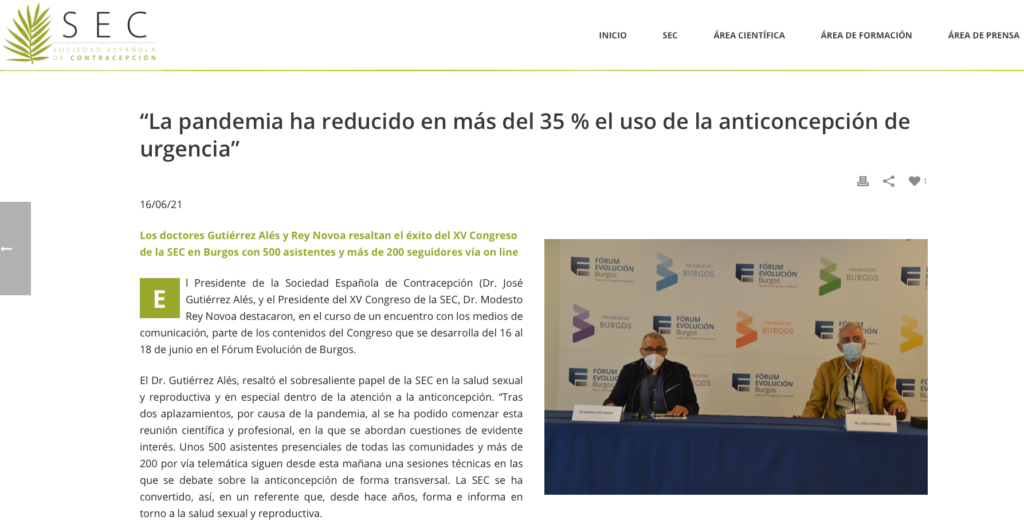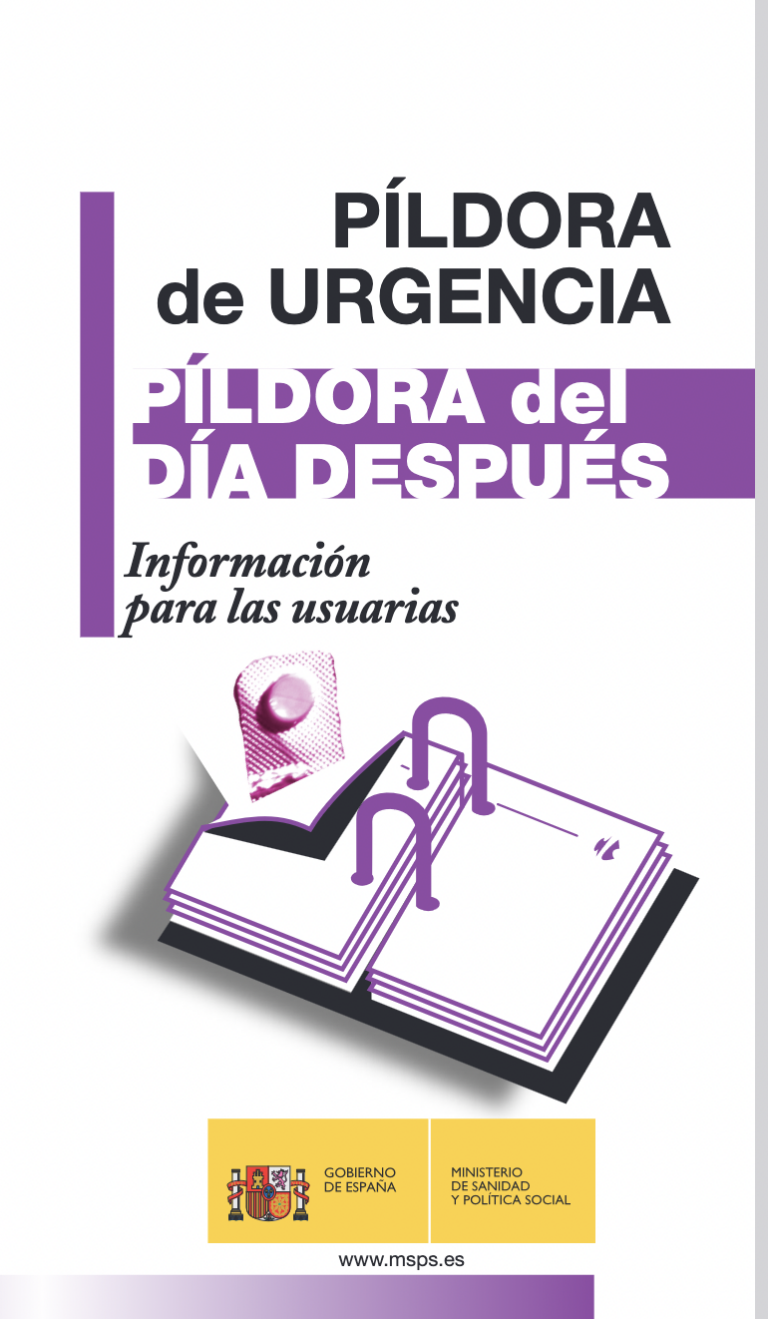Spain: EC use drops due to the pandemic
July 2021. According to the Spanish Society of Contraception (SEC), use of emergency contraception pills dropped among women aged 25 to 30 and 35 to 40, from 38% to 2,7. Read more here:
July 2021. According to the Spanish Society of Contraception (SEC), use of emergency contraception pills dropped among women aged 25 to 30 and 35 to 40, from 38% to 2,7. Read more here:
January 2019. The International Federation of Gynecology and Obstetrics (FIGO) and the International Consortium for Emergency Contraception (ICEC), launch the 4th edition of “Emergency Contraceptive Pills: Medical and Service Delivery Guidance”. The guidance is designed to serve as a key reference and training document for service provision. It includes a range of medical and service delivery…

February 2023. In 2009, emergency contraception pills (ECPs) were reclassified to pharmacy products in Spain and prescription requirements were removed. This was a first measure to equalize access in all country’s territory. Last week, a new step was taken in this direction: according to the text of the Reform of the law on Sexual and…
November 2022. The Danish Health Data Agency has recorded an increase of about 27% in the number of emergency contraception pills (ECPs) sold in the past five years: from 107.000 units sold in 2017 to 136.000 in 2021. The largest increase was registered in the Zealand Region (44%). The Danish Broadcasting Corporation published this news,…
The Ministry of Health in Luxembourg announced on March 17 that UPA EC is available in pharmacies without a prescription since February 1, 2015. Click here to read Ministry statement. We have also been informed that UPA EC pills will be available for direct purchase in pharmacies in the Netherlands, Portugal and Spain in the coming weeks…
“Emergency contraception methods” (the EC wheel), a counselling tool for pharmacists and health providers published in May 2016 by ECEC, is now available in French, and can be used from tablets, cellphones and computers (on and off line). This tool is inspired in the WHO Medical eligibility criteria for contraceptive use (MEC) wheel, and based on the…
November 2022. An article recently published in the German edition of Glamour points at an important element in EC knowledge and use in many countries: the ban on EC advertising in media outlets, and how it contributes to the low knowledge of this contraceptive method. “I was unprepared for everything I had to endure that…
Menú